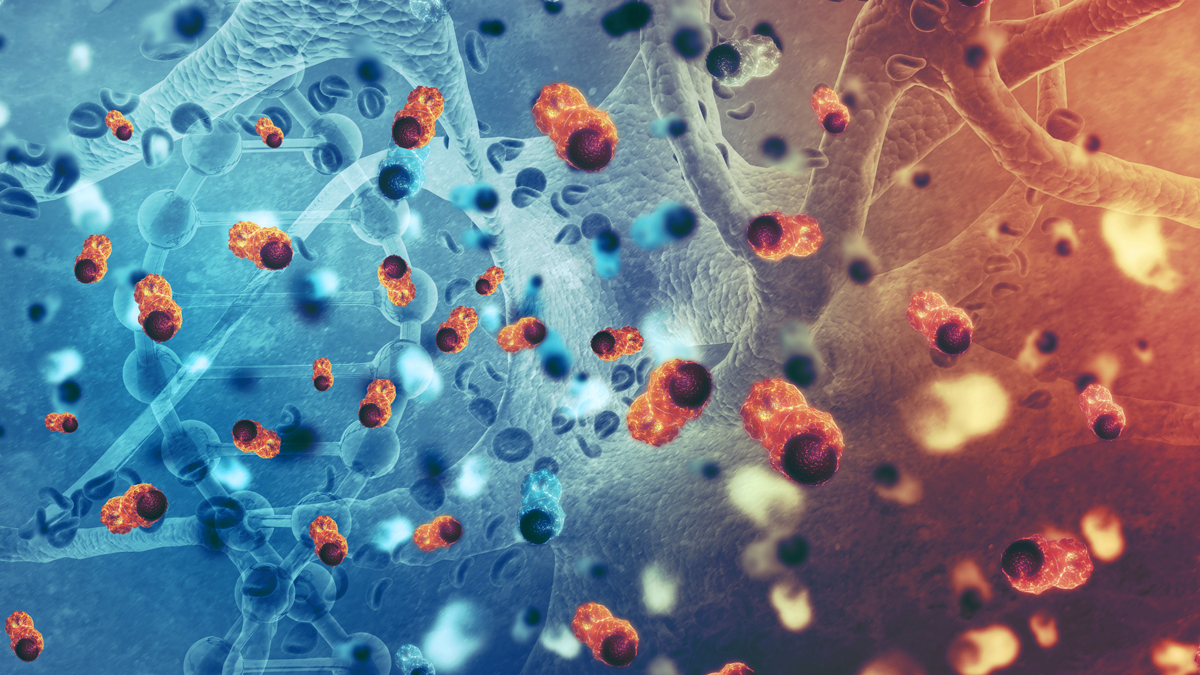Herd immunity is nice – but what about me?

Shahrokh Shabahang discusses why we need a personalised approach to COVID-19 immunity testing.
To-date, the battle against COVID-19 has been waged largely in the field of public health, using a series of binary, black-and-white thresholds to measure progress. The number of positive cases per 100,000 people, yes/no results on PCR tests, absence or presence of antibodies – these have set the benchmarks used to determine when we can open our schools and restaurants, remove our masks and resume something resembling our old routines.
While these numbers do tell us something about the relative immunity of the population writ large, they don’t tell us anything about our own, personal immune profiles. If we really want to get “back to normal” with confidence, we are going to need a higher degree of personalised health data and more nuance used to interpret it.
By now, we have all witnessed countless examples of this individual uncertainty manifesting itself in a combination of best guess risks, uninformed bravado and trepidatious returns to crowded restaurants, stores and offices. Some still don’t trust that it’s safe to take off their masks or even leave their homes. In the US, people like Senator Rand Paul, are pointing to evidence of natural immunity following a previous infection with the virus. And many more are somewhere in between, weighing vague statistics like 95% or 66.3% vaccine effectiveness rates, reading the latest updates on local infection rates and cautiously deciding whether it’s safe or not to see their friends again.
The reason none of them can say with certainty whether or not they are truly safe is because everyone’s immune response is unique to that individual. In our work studying individual immune responses to COVID-19 and COVID-19 vaccination, we’ve consistently found that the immediacy, strength and duration of individual responses can vary widely – even when many variables are constant.
For example, in a pilot study we have been conducting over the last seven months, which tracks several hundred individuals, including people who’ve had COVID-19 and convalesced, those who were never infected and those who’ve received one of the three types of vaccines available in the U.S., we have found macro, population-wide trends that largely echo those that have been reported by the CDC and vaccine manufacturers themselves. However, we’ve also found a number of outliers.
These include many people who have had COVID-19 and never developed an immune response, others who have been vaccinated but take much longer than anticipated to develop an immune response and still others who appear to have had exposure to the virus but have not developed a robust immune response. In some cases, we see significant variations among similarly aged people with similar health histories when it comes to their individual responses to the virus or vaccines.
What does that mean in real-world terms? Put simply, many people who think they are immune may not be, and others who think they are still at risk may be safe. But no one knows for sure unless they’ve gone through a comprehensive analysis that evaluates the full spectrum of individual immune responses to the viral antigens.
Traditional SARS-CoV-2 antibody tests do not provide this level of granularity. As the U.S. Food and Drug Administration (FDA) rightly pointed out in an advisory, traditional SARS-CoV-2 antibody tests have not been evaluated to assess the level of protection provided by an immune response to COVID-19 vaccination. That’s largely a function of the fact that these tests are very one-dimensional. A typical antibody test will evaluate a single antibody response against one or two antigens. As we know, SARS-CoV-2 has been associated with a range of permutations of antigens and antibody responses, so simply ruling out one or two could lead to a situation in which an individual shows a strong antibody response and neutralizing activity against a single antigen, but could unknowingly have had no response to another.
For that reason, the FDA is right to caution the public against an over-reliance on simple, negative/positive antibody tests. But, here again, we’re seeing a situation in which the need for consistent communication around public health goals is overshadowing the very real need to know our own, personal exposure risk levels.
In fact, the technology exists today to conduct robust, individual antibody testing at scale, tracking multiple combinations of antibody responses against several different antigens, giving individuals a comprehensive immune response score. That score – and the deep, nuanced information behind it – could not only drive a faster, more confident return to normal, it could also help people who are currently sitting on the sidelines. For example, patients taking immunosuppressant drugs for rheumatoid arthritis or those who have had adverse reactions to vaccines, would be able to fine tune an individual treatment plan with their health care providers and design a more personalized treatment plan.
Perhaps most importantly, though, it would allow all of us to evaluate the durability of our vaccine responses and make informed, fact-based decisions about booster shots and long-term immunity.
The medical community has learned so much over the last decade of advances in personalised medicine and immune science. It would be a shame to ignore those learnings in favor of a blunt, public health policy-driven response to COVID-19 that does not take the unique biochemistry of the individual into account. We need to encourage – not discourage – immunity testing, but we need to do it sensibly, making sure we’re taking the full spectrum of potential exposures and immune responses into account, before we can honestly evaluate our success at battling back this pandemic.
About the author
Shahrokh Shabahang, Ph.D. is co-founder and chief innovation officer at Aditxt Therapeutics.










